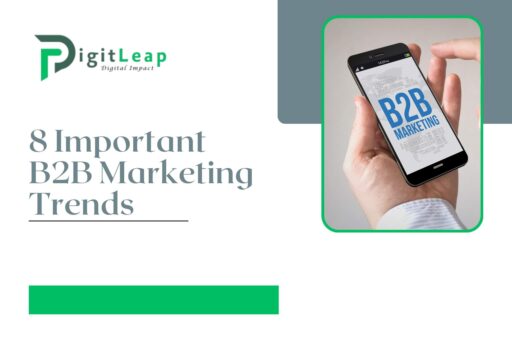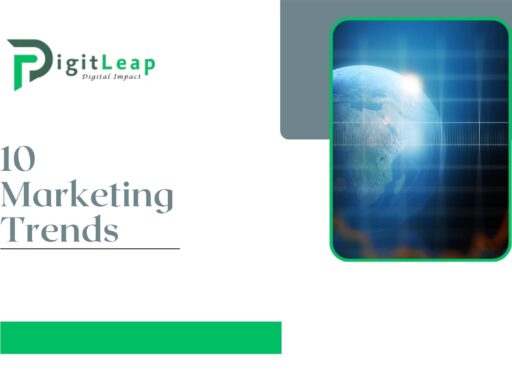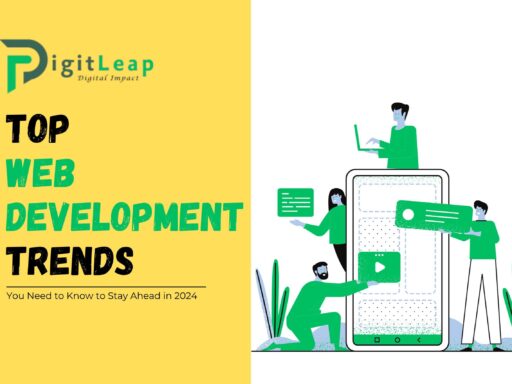B2B marketing continues to evolve rapidly, and staying updated on the latest trends is essential for businesses that want to remain competitive. In 2024, the B2B space is seeing shifts toward technology integration, customer-centric strategies, and more effective data usage. Businesses are refining their approaches, using innovations to reach and engage potential clients in new ways. Let’s explore the key B2B marketing trends that will dominate in 2024.
1. Personalization Becomes Non-Negotiable
In B2B marketing, personalization has become critical for success. Buyers today expect tailored experiences that address their specific needs and challenges. Personalization in 2024 goes beyond simply adding a company name to an email; it involves crafting messages and solutions that resonate with a prospect’s unique industry, business size, and pain points.
With advanced AI and data analytics tools, B2B companies can now analyze customer behavior, segment audiences more effectively, and deliver targeted content. Personalized marketing not only increases engagement but also helps build trust with potential clients, making them more likely to choose your solution over a competitor’s.
2. AI and Machine Learning Power Smarter Marketing
AI has already made its mark on B2B marketing, but in 2024, its role is becoming more sophisticated and indispensable. From customer relationship management to predictive analytics, AI is transforming how marketers understand, engage, and retain customers.
For example, machine learning algorithms can predict which leads are most likely to convert, enabling sales teams to focus their efforts strategically. AI can also automate routine tasks such as data analysis, freeing up time for teams to focus on strategy. Additionally, with the help of AI-driven insights, B2B marketers can better understand client behavior and preferences, delivering relevant content and nurturing leads more effectively.
3. Account-Based Marketing (ABM) Gains Momentum
Account-Based Marketing (ABM) has gained popularity in the B2B sector for its targeted, high-ROI approach. ABM involves identifying key accounts within an industry and crafting highly tailored marketing campaigns to engage those accounts specifically. In 2024, ABM is expected to grow even more as companies recognize the value of personalizing marketing efforts for their most promising prospects.
With the help of AI and data analytics, ABM campaigns can be more precise, identifying the best leads and creating hyper-targeted messaging. For B2B companies, ABM can be a highly effective way to build stronger relationships with high-value clients and improve conversion rates by focusing on accounts that are more likely to turn into long-term partnerships.
4. Video Content Drives Engagement
While video content is widely used in B2C marketing, it is now proving highly effective in the B2B space as well. Video allows businesses to convey complex ideas in a more engaging and digestible way. From product demos and client testimonials to live webinars and explainer videos, B2B companies are leveraging video to connect with potential clients and showcase their expertise.
In 2024, video content will continue to gain popularity, particularly for lead generation, product training, and brand awareness. With the ability to humanize a brand, video offers a powerful way for B2B companies to tell their story, demonstrate their products, and address client concerns in a visual format that is easy to consume.
5. Focus on Customer Experience and Retention
Customer experience (CX) has emerged as a crucial factor in B2B marketing. B2B clients seek smooth, transparent, and responsive interactions throughout their buying journey. In 2024, B2B companies are placing an even greater focus on delivering outstanding CX, recognizing that a positive experience can drive loyalty and turn clients into brand advocates.
Instead of focusing solely on customer acquisition, B2B companies are investing in retention strategies, recognizing that maintaining existing clients is more cost-effective than acquiring new ones. By prioritizing CX, companies can improve client satisfaction, encourage repeat business, and increase the likelihood of referrals.
6. Data-Driven Decision Making Takes Priority
Data has become one of the most valuable assets in B2B marketing, allowing businesses to make informed, precise decisions based on real insights rather than assumptions. In 2024, data-driven marketing is at the forefront, with companies using analytics tools to track client interactions, measure campaign effectiveness, and adjust strategies on the fly.
For B2B marketers, having access to accurate data means being able to pinpoint what works and what doesn’t in real-time. With analytics platforms becoming more advanced, businesses can segment their audience, predict market trends, and deliver content that aligns with buyer needs. This shift toward data-driven marketing not only enhances efficiency but also maximizes ROI by ensuring that every decision is based on evidence.
7. LinkedIn Dominates B2B Social Media
When it comes to B2B marketing, LinkedIn is the go-to platform for reaching professionals and decision-makers. In 2024, LinkedIn remains the dominant social media channel for B2B engagement, with new tools that enable brands to connect with audiences more effectively. LinkedIn’s targeting options allow businesses to reach specific industries, job titles, and companies, making it an invaluable resource for lead generation and brand visibility.
From sponsored posts and LinkedIn Ads to organic content and thought leadership articles, LinkedIn offers a variety of ways for B2B companies to build credibility and showcase expertise. By creating valuable content that resonates with LinkedIn’s professional audience, brands can position themselves as industry leaders and attract high-quality leads.
8. Ethical Marketing and Transparency Build Trust
In 2024, transparency and ethical marketing have become essential elements of B2B marketing. Clients today are more conscious about the values and ethics of the companies they do business with. B2B companies that practice ethical marketing—such as being transparent about their data usage policies, demonstrating corporate responsibility, and ensuring fair practices—are more likely to earn the trust of their clients.
This trend toward transparency isn’t just about compliance; it’s a way to stand out in a crowded marketplace by building a brand that clients feel they can trust. B2B clients are becoming increasingly aware of issues like data privacy, supply chain ethics, and environmental impact, and they prefer doing business with companies that share their values. By practicing ethical marketing, businesses not only attract clients but also build lasting, trust-based relationships that can support long-term growth.
Conclusion
As the B2B landscape continues to change, keeping up with these emerging trends is essential for success in 2024. From personalized marketing strategies and data-driven insights to ethical practices and AI integration, these trends offer businesses the tools to connect meaningfully with clients, build trust, and drive sustained growth.
At Digit Leap, we’re committed to helping businesses navigate these B2B marketing trends with confidence and expertise. By focusing on personalization, transparency, and innovation, we help brands forge stronger connections and thrive in an evolving marketplace.






